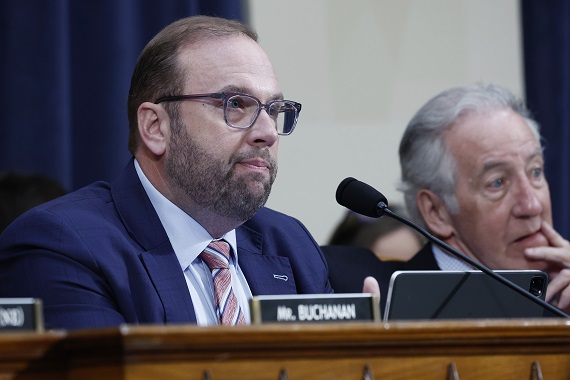By Carson Swick
Baltimore Sun
(TNS) tax cuts House GOP
(Baltimore Sun) There’s less than a week before President-elect Donald Trump begins his second term, and congressional Republicans are already working to preserve one of his signature policies.
The House Ways and Means Committee on Tuesday held a hearing on the future of Trump’s 2017 tax overhaul, as witnesses described what the cuts mean for American consumers and the U.S. economy.
Established by the Tax Cuts and Jobs Act (TCJA), the “Trump tax cuts” — as the 2017 law has come to be known — are set to expire at the end of 2025 if Congress does not act. Studies have shown the law cut tax rates across all demographics, but those in the 98th income percentile benefited the most.
For most questions related to the legislation, the answer depends on which party you ask.
During Tuesday’s hearing, Ways and Means Chairman Jason Smith, a Missouri Republican, credited the TCJA with unleashing the prosperity seen in Trump’s first term. The law enabled record-low unemployment, stable inflation and widespread confidence in the small business community, Smith said.
tax cuts House GOP
“If we want to continue President Trump’s legacy of a strong economy, Congress must act swiftly to make the tax cuts permanent,” Smith said.
The chairman claimed that failing to act would “slash in half” TCJA provisions like the $2,000 child tax credit, death tax exemption for family farmers, and guaranteed deduction of up to $12,000 for 91% of all taxpayers. Additionally, Smith claimed letting Section 199A of the law expire would compel 26 million small businesses to pay up to 43% of their income in federal taxes.

Democrats, led by Ways and Means ranking member Richard Neal of Massachusetts, countered by calling out Republicans for borrowing money to offset a loss of tax revenue upon passing the TCJA. Neal pointed to the increase in the national debt since 2017 to justify his position, though Smith argued the TCJA has essentially paid for itself already.
“If this was actually about lowering costs for working families, Republicans wouldn’t be running their 2017 playbook back to the tune of $1.8 trillion of borrowed money,” Neal said.
A witness called by Neal, Brendan Duke of the progressive Center for American Progress, cited a U.S. Treasury report claiming it would cost $4.2 trillion to extend the tax cuts through 2035. Duke said $2.4 trillion of this value would go toward cuts for the top 2% of American taxpayers — those earning more than about $400,000 per year — while the rest of the country would see only marginal tax cuts.
“The easiest way to offset the tax cuts is to just not offset them,” Duke said, suggesting a compromise that extends the law’s provisions for only the bottom 98% of earners.
One of Smith’s witnesses, Michelle Gallagher of Adamy Valuation, said swift action to extend the TCJA is needed to provide a stable environment for businesses seeking to plan for the future in terms of hiring and attracting investment.
According to Smith, extending the TCJA’s provisions would lead to $284 billion in new GDP growth, $150 billion in new small business growth and $50 billion in opportunity zone investments to revitalize struggling neighborhoods. He cited a study released Tuesday by the National Association of Manufacturers, which found that nearly 6 million jobs could be lost if Congress fails to act.
©2025 Baltimore Sun. Visit baltimoresun.com. Distributed by Tribune Content Agency, LLC.


